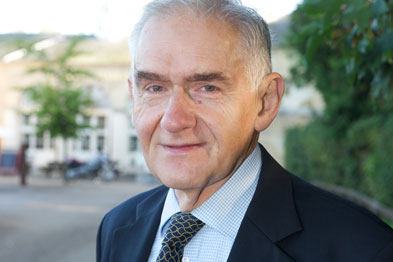TV entertainment is killing our efforts to tackle the obesity crisis

Public Health England’s guidelines for dealing with obesity, such as GPs becoming role models for physical activity is yet another futile attempt to tackle the obesity epidemic that ‘would cost £27 billion by 2015‘ (as predicted by PHE in 2007). Today, no one knows what the direct and indirect costs of obesity actually are.
As a GP, I cannot do it alone
Although my clinics for smoking cessation and substance avoidance were fairly successful, my efforts to reduce my patients’ waistlines have been a spectacular failure. But ‘failure’ does not fit in with a GP’s image of infallibility and I started looking high and low for the villain who was sabotaging my efforts.
I was soon struck by the proliferation of food and drink shows on TV. They came in every shape and size from MasterChef and the Great British Bake Off to Dinner Date and Hell’s Kitchen. Rose Prince established two years ago that we were fed 434 hours of TV cookery a week, which means you need an 18-day week if you wish to enjoy all the TV feasts.
The exponential increase of food advertising started in the spring of 2011, when the broadcasting industry regulator Ofcom allowed product placement (PP) on TV channels. Companies are obliged to display PP’s logo for three seconds at the start of a programme when a brand has paid to have their product featured within the programme. How many people know that?
Product placement has been an established marketing practice for nearly a century and in the 1920s, tobacco companies started paying Hollywood stars to promote smoking in films, and doctors to endorse cigarettes as an excellent expectorant.
As if PP was not enough to boost profits, a much more insidious and totally unregulated means of promoting consumption was cooked up. Celebrities, not satisfied with drinking and dining branded food in front of the cameras, ensured that their own BMIs were gliding into new heights. Fat was fab and obesity itself was now a celeb.
So, what can we do when dealing with a multi-billion pound industry, which has no intention of reining in its cash cow and is happy to keep feeding it? Particularly when the Government sits astride obesity enjoying both huge tax profits and anonymity from any responsibility about what is happening to its population?
As a GP, I cannot do it alone. I need the help of PHE, the agency responsible for the prevention and management of obesity since April 2013. Clearly, standard advice won’t work or it will be prove only a temporary cure, because essential ingredients in the ‘patient education’ pot are missing.
Campaigns to tackle obesity will fail unless people are told:
- Switch on your survival alertness, currently hypnotised by brilliant psychologists, and detect early the enemy masquerading as entertainment
- Allocate more time to books and periodicals and less to TV
- Recognise that product placement also doubles for peer pressure
- When you see on the screen ample celebrities, portly public figures and plus-size presenters sitting on overloaded sofas saying it’s OK to look like me, imagine them smoking and ask yourself what your reaction would have been
- Finally, follow Hippocrates’ 2000-year old advice to ‘eat less and exercise more’ and ‘everything in moderation‘. If the famous physician lived today, he would have added: ‘beware of TV entertainment!’
If you would like to write to Pulse please email [email protected]
Pulse October survey
Take our July 2025 survey to potentially win £1.000 worth of tokens

Visit Pulse Reference for details on 140 symptoms, including easily searchable symptoms and categories, offering you a free platform to check symptoms and receive potential diagnoses during consultations.












